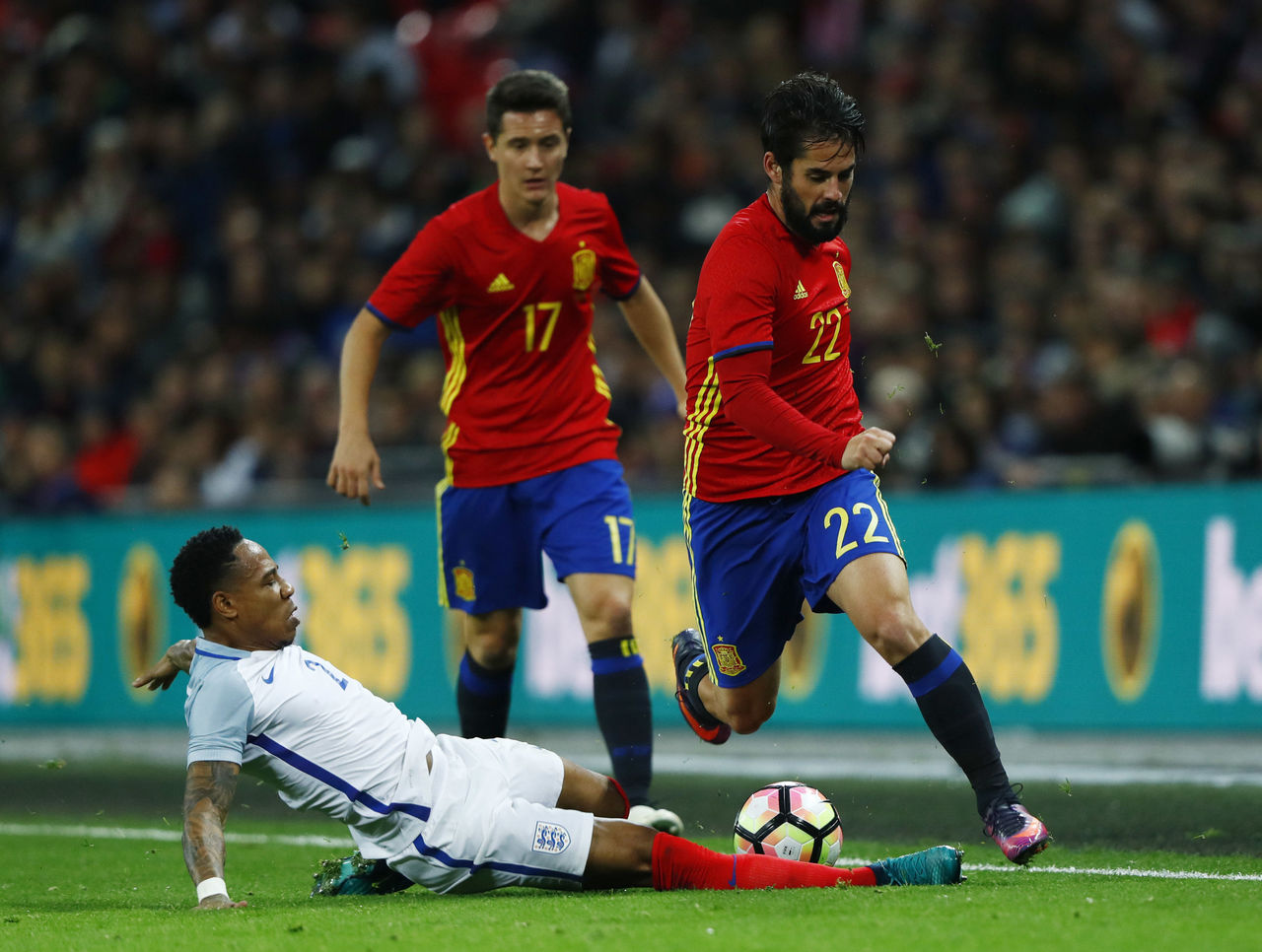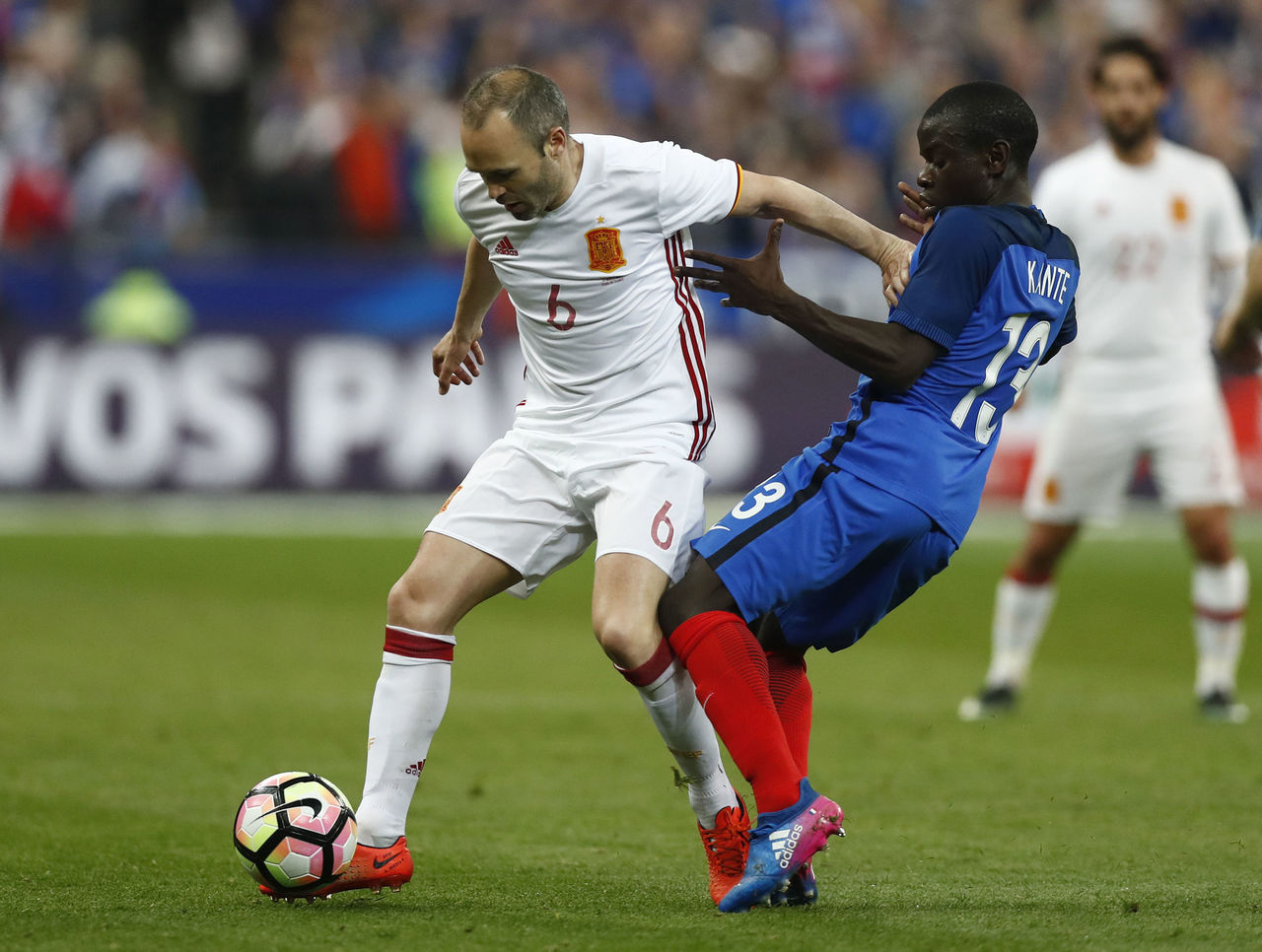How once-flailing Spain reclaimed its status as a European juggernaut
In June 2014, Spain came crashing down.
Madrid-based daily Marca called it "The End." Conceding seven goals in the first two group-stage matches, La Roja limped out of the World Cup in Brazil. Passing - the very thing that defined this team - looked more like a chore. And Xavi, the metronome of Vicente Del Bosque's glorious sides, sat still on the bench.
Carles Puyol had retired before that ill-fated tournament, and Xavi and Xabi Alonso followed suit soon after. Del Bosque, who'd offered to resign two years earlier, decided to leave after Euro 2016.
With that, the soul of the team slowly came apart.
As the greats stepped away, however, youngsters built in the traditional Spanish mould began to emerge. Newly appointed Julen Lopetegui promised an "evolution," not a "revolution," and stuck to his word. He's shown the power of balance - that a combination of youth and experience can work - and in 2018 World Cup qualifying, Spain's relied on both to get back to its best.
Lopetegui's past experiences as a youth coach in the Spanish football system helped him understand the potential his country still had. The 51-year-old guided the Under-19 and Under-21 sides to European Championships in 2012 and 2013, respectively. He saw first-hand David De Gea's shot-stopping prowess, Thiago Alcantara's brilliant vision and interplay, Isco's penetrative runs, and Alvaro Morata's devastating scoring power.
All four have now earned significant playing time with the senior national team.

Lopetegui also offered opportunities to peripheral figures, no matter their age. Athletic Bilbao striker Aritz Aduriz - in no way a contributor to Spain's near decade of success - received call-ups in his mid-30s. Ander Herrera won his first cap at 27 years old. Even forgotten men Iago Aspas, Gerard Deulofeu, and Suso saw the light of day once again.
None of it's backfired. Spain's unbeaten in Lopetegui's 12 matches since his appointment in July 2016, and on the verge of securing direct passage to the World Cup ahead of Friday's qualifier against Albania.
The manager only had the luxury to experiment because of constant variables like Andres Iniesta, Sergio Ramos, Sergio Busquets, and Gerard Pique. They've kept the Spanish spirit vibrant and provided younger players the time to assimilate. With all four still capable of producing at the highest level, Lopetegui had no need to overhaul the entire team or find solutions in every single position. Their presence eased the rebuilding process.

Not that the new blood lacked match experience. Thanks to La Liga managers' trust in youth, newcomers to the international scene have already secured starters' roles at club level. Many players in their early 20s have played senior football for several seasons.
Just look at Atletico Madrid pair Saul Niguez and Koke. Despite appearing a combined 39 times for their country, the midfielders have featured in more than 300 matches for the capital outfit. Both have become complete footballers since Spain's capitulation in Brazil. And the two are now among Lopetegui's protagonists.
Even if Lopetegui's Spain can't produce dizzying passes like the golden generation could, it plays with a purpose and killer instinct not seen in years. His system is not always a traditional 4-3-3 as it was under Del Bosque, though that doesn't mean Spain's attack-first approach changes with every tactical tweak. Sometimes Lopetegui fields a proper centre-forward, while other times, as he did against Italy, a false nine like David Silva or Isco pops in between the lines and bamboozles opponents.
"This may be a different generation, another era, but the touch and control that defined them is still there," the Guardian's Sid Lowe wrote in September. "In Isco and Marco Asensio, there is talent too - and of the purest kind."
The 3-0 win over Italy last month was Spain's most convincing against any top side since it defeated the Azzurri in the final of Euro 2012. Iniesta kept the operation running smoothly from a withdrawn position as Silva launched balls and took markers out of position. It was a high-intensity performance that transcended the usual tiki-taka we've come to expect.
While the end may have seemed nigh, Lopetegui and Co. proved the headlines were premature.
(Photos courtesy: Action Images)
HEADLINES
- Leafs' Stolarz returns vs. Golden Knights after missing 33 games
- LeBron: 'I don't really care' about reports of Buss frustrations
- McDavid takes responsibility: 'When I'm better,' whole team responds
- Some NHLers embrace getting booed. Can Marner do it in Toronto?
- Malkin: 'I want everybody to see I can play next year'